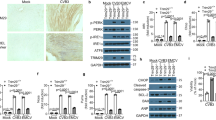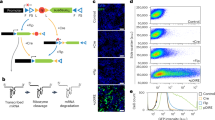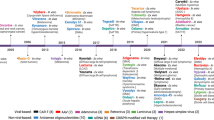Abstract
Autonomous parvoviruses preferentially replicate in and kill in vitro–transformed cells and reduce the incidence of spontaneous and implanted tumors in animals. Because of these natural oncotropic and oncolytic properties, parvoviruses deserve to be considered as potential antitumor vectors. Here, we assessed whether parvovirus H1 is able to kill human hepatoma cells by induction of apoptosis but spares primary human liver cells, and whether the former cells can efficiently be transduced by H1 virus–based vectors. Cell death, infectivity, and transgene transduction were investigated in Hep3B, HepG2, and Huh7 cells and in primary human hepatocytes with natural and recombinant H1 virus. All hepatoma cells were susceptible to H1 virus–induced cytolyis. Cell death correlated with H1 virus DNA replication, nonstructural protein expression, and with morphological features of apoptosis. H1 virus–induced apoptosis was more pronounced in p53-deleted Hep3B and p53-mutated Huh7 cells than in HepG2 cells which express wild-type p53. In Hep3B cells, apoptosis was partially inhibited by DEVD-CHO, a caspase-3 inhibitor. In contrast, H1 virus–infected primary hepatocytes were neither positive for nonstructural protein expression nor susceptible to H1 virus–induced killing. Infection with a recombinant parvovirus vector carrying the luciferase gene under control of parvovirus promoter P38 led to higher transgene activities in hepatoma cells than in the hepatocytes. Taken together, H1 virus kills human hepatoma cells at low virus multiplicity but not primary hepatocytes. Thus, recombinant H1 viruses carrying antitumor transgenes may be considered as potential therapeutic options for the treatment of hepatocellular carcinomas. Cancer Gene Therapy (2001) 8, 158–167
This is a preview of subscription content, access via your institution
Access options
Subscribe to this journal
Receive 12 print issues and online access
$259.00 per year
only $21.58 per issue
Buy this article
- Purchase on Springer Link
- Instant access to full article PDF
Prices may be subject to local taxes which are calculated during checkout
Similar content being viewed by others
Author information
Authors and Affiliations
Corresponding author
Rights and permissions
About this article
Cite this article
Moehler, M., Blechacz, B., Weiskopf, N. et al. Effective infection, apoptotic cell killing and gene transfer of human hepatoma cells but not primary hepatocytes by parvovirus H1 and derived vectors. Cancer Gene Ther 8, 158–167 (2001). https://doi.org/10.1038/sj.cgt.7700288
Received:
Accepted:
Published:
Issue Date:
DOI: https://doi.org/10.1038/sj.cgt.7700288
Keywords
This article is cited by
-
Oncolytic parvoviruses: from basic virology to clinical applications
Virology Journal (2015)
-
Distinctive pharmacological differences between liver cancer cell lines HepG2 and Hep3B
Cytotechnology (2015)
-
Viral genes as oncolytic agents for cancer therapy
Cellular and Molecular Life Sciences (2015)
-
Activation of the human immune system by chemotherapeutic or targeted agents combined with the oncolytic parvovirus H-1
BMC Cancer (2011)
-
Parvovirus H-1 induces cytopathic effects in breast carcinoma-derived cultures
Breast Cancer Research and Treatment (2010)



